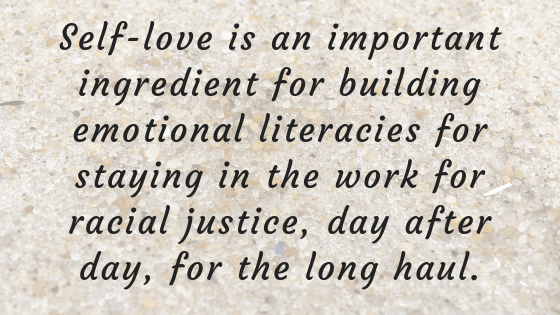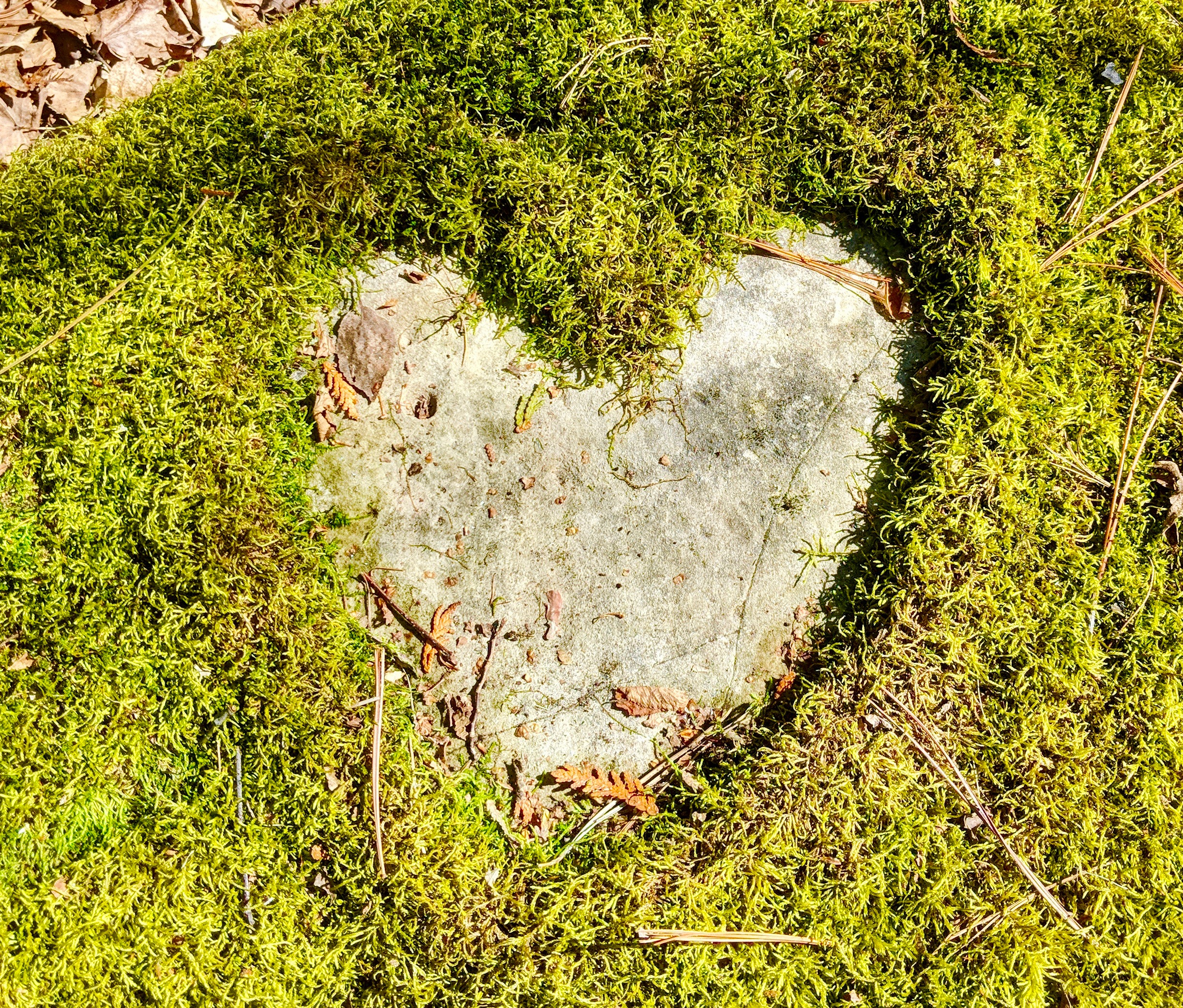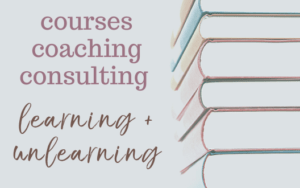The days leading up to this new year have been bumpy for me, pushing me to recommit to radical self-love. I’ve had some really tough conversations with family around everyday injustice, and these conversations have reminded me why we need a deep well of emotional literacies for confronting complicity.
In the midst of one of these tough conversations—in which I was speaking aloud my embodied responses to white supremacy—I shared that my heart was throbbing, and I couldn’t pretend that my whole body wasn’t aching. Rather than hearing me, my white family member responded to me (a white woman) with a question that felt more like an attack: “Don’t you love yourself?”
In the moment, I spoke into my both/and understanding that love and contempt, grief and joy, hope and anger co-exist. Expressing anger doesn’t negate love, and love can’t cancel out important questions about our responsibilities.
In that moment I was also stunned with how the question felt like a non sequitur. How did self-love come into this conversation? I love myself enough to communicate hurt, so why do you seem not to care?
The question itself felt like a punch, alerting me to its function to derail accounting for racism. It alerted me to the fact that my family member perceived me as attacking them and chose to move from defensiveness to offense. It alerted me that questioning a white woman’s self-love is an offensive tactic, one invoking internalized sexism. It also alerted me to the deep vulnerability underlying our conversation, which I can only explain as white fragility, or a sense of the self as so fragile that accounting for harm shakes one’s self-perception and self-love.

This interaction is teaching me an important lesson for countering white fragility: that is, self-love has a role to play. Self-love allows the strength for looking at participation in racism and other oppression without being blown over or too vulnerable to make change. Self-love is an important ingredient for building emotional literacies and resilience for staying in the work for racial justice, day after day, for the long haul.
So, as we enter 2019, let me affirm:
I strive to love myself deeply, imperfectly, and unconditionally.
Self-love is something I want to do better and more fully. It’s something I struggle with, having internalized the “not enough” beliefs of white womanhood, and it’s something I strive for as part of showing up authentically, messy, and fully human.
It’s also exactly why this question was posed to me in the midst of a fight at this time of setting intentions and making resolutions.
Because …
Loving myself means knowing my boundaries and insisting they not be crossed.
Loving myself means calling out violations and violence and dealing with the ramifications of having people upset with me.
Loving myself means a lot of introspective self-work and ongoing learning and healing.
Loving myself means getting things wrong and trying again and again and again … and still holding myself tightly, giving myself hugs.
Loving myself means pleasing myself, which conflicts regularly with pleasing others.
Loving myself means forgiving myself for all the times I shrink (stay silent) or puff up (exaggerate my own importance)—and celebrating the times when I stand solid and TALL.
Loving myself means allowing all my emotions, including disappointment, grief, and anger because my “well-stocked arsenal of anger” is also a “powerful source of energy” (with thanks again and always to Audre Lorde for lessons on the uses of anger).

As I welcome the new year, I resolve to practice the sort of radical self-love that allows for accounting for wrongdoing and stepping into responsibilities. For I have a lot to speak and act up about as a white woman with power in a deeply unjust, racist world.
I resolve to practice self-love …
for taking up space
for speaking even when shaking
for leaving when exit seems the only option
for living in unresolved tension
for knowing my human value
for affirming the humanity of all people
for saying NO and following only the “strong yes”
for knowing that daily lessons are needed
for asking that these lessons be gentle
to practice self-love for countering white fragility.
—
This post is written by Beth Godbee for Heart-Head-Hands.com. For more posts like this one, you might try “Writing with Heartache” and “Against the Tyranny of Positivity.” If you appreciate this site, if you connect with the storytelling, or if you use any of the recipes or resources, consider making a one-time or sustaining donation. Please also consider subscribing to posts and liking this blog on FB. Thanks!



Wow, Beth! This post and your practice have the power and sustainability that can only be sustained through deep work. If it is okay with you, I would like to add it to my reading list of resources. And thank you for your work.
Joyce, thanks!
I’m happy for you to share this post as a resource. Will you send me a link for your resource list? I’d be interested in seeing other pieces you’ve compiled, too.
I’m appreciative for being in this work alongside you.
All best,
Beth
Yes, definitely! Right now it is scattered between hard copies and electronic and I am in the process of creating one document. I will definitely send a link to you once I get more sources all in one place.
Joyce, thanks! And many good wishes with pulling it together into one place. 🙂